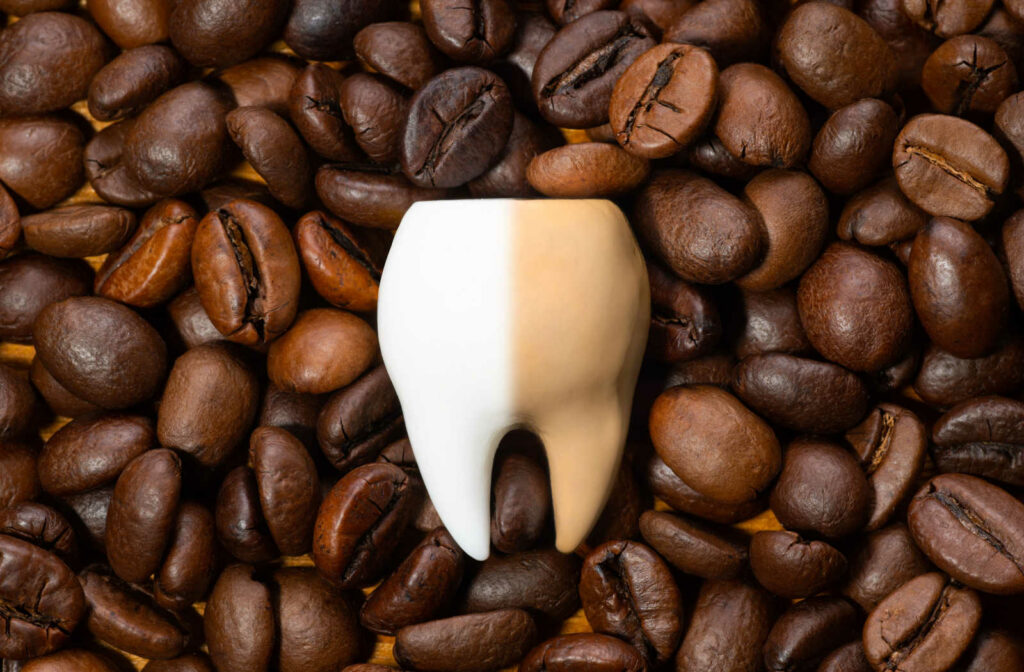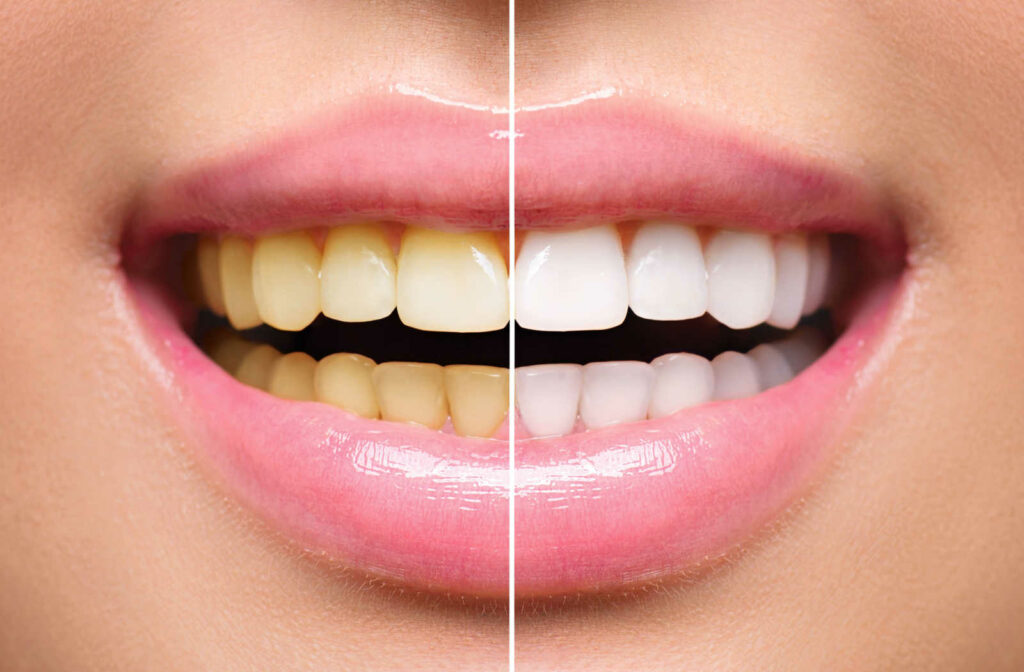Teeth whitening has become one of the most popular cosmetic dental procedures because it can boost your confidence and help you make an excellent first impression. The big question is, how long will your teeth remain white?
There isn’t a simple answer to how long your teeth whitening will last because it depends on several factors:
- Type of treatment
- Your oral hygiene habits
- Genetics
- Age
However, there are ways to increase the longevity of your treatment.
Types of Whitening Treatments
With so many teeth whitening options available, deciding which treatment is best for you can be difficult.
In-Office Treatments
In-office teeth whitening is a professional treatment done in the dentist’s office. To improve the results, it uses a higher concentration of whitening agents as well as a specialized light.
When compared to other whitening options, in-office treatments can provide faster and longer-lasting results.
Take-Home Kits
Take-home kits are usually prescribed by a dentist and are used at home with custom-fit trays. The trays contain whitening gel, and you wear them for a set amount of time each day until the desired results are achieved.
When compared to in-office treatments, take-home kits can provide more gradual results.
Over-The-Counter Whitening Products
Over-the-counter products, such as whitening strips, gels, and toothpaste, are available without a prescription. These types of whitening agents are typically used in lower concentrations and may take longer to produce noticeable results.
Your Oral Hygiene Habits
Whitening your teeth is only one step toward a more radiant smile. Maintaining good oral hygiene habits is important for preserving the results of your whitening treatment and maintaining the health of your teeth.
Here are some important habits to develop to keep your teeth as white as possible for as long as possible:
- Brush and floss daily
- Use a whitening toothpaste
- Avoid staining foods & drinks
- Visit your dentist regularly
Brush & Floss Daily
Brushing twice a day and flossing once a day are essential to remove plaque and prevent tooth decay and gum disease. These habits also contribute to the whiteness of your teeth by removing surface stains caused by food and drink.
Use a Whitening Toothpaste
Using whitening toothpaste is one of the simplest ways to keep your teeth whitening results. Whitening toothpaste contains mild abrasives and polishing agents that aid in the removal of surface stains and the prevention of new ones.
Not all whitening toothpaste is created equal. Make sure to choose a product that’s both effective and gentle on your teeth and gums.
The Canadian Dental Association (CDA) recommends looking for toothpaste with the CDA seal of approval, which means it has been independently tested and proven safe and effective.

Avoid Staining Foods & Drinks
Your diet also has an impact on the longevity of your teeth whitening results. Certain foods and beverages can cause tooth staining and discolouration, minimizing the effects of your whitening treatment. Try to avoid things such as:
- Coffee, tea & red wine: These drinks all contain pigments that easily attach to your teeth and stain them.
- Dark Berries: Berries, grapes, and cherries contain high levels of pigments, which can also cause staining.
- Dark sauces: Soy sauce, balsamic vinegar, and other dark sauces also have high levels of pigment.
- Sugary, acidic foods: Sugary and acidic foods can erode your teeth’s enamel, making them more prone to staining.
Visit Your Dentist Regularly
Regular dental exams and cleanings can help in the detection and prevention of oral health issues before they get worse. Your dentist can provide additional whitening treatments as needed to maintain your results.
The Role of Genetics
Everyone’s teeth are unique, and factors like genetics can also influence the longevity of your teeth whitening.
Tooth Structure
Some people have naturally thicker enamel, which makes their teeth more resistant to staining. Others may have thinner enamel, making their teeth more susceptible to discolouration.
Tooth Colour
Genetics can also influence the natural shade of your teeth. Some people have naturally whiter teeth, whereas others may have yellow or grey undertones.
Age & Teeth Whitening
As you get older, it may become more difficult to achieve and maintain dramatically whiter teeth. This isn’t to say that teeth whitening isn’t an option for older people; it just means that you may need to approach it differently.
Teeth naturally yellow as we age, and the enamel thins, allowing the dentin (the layer beneath the enamel) to show through and affect the overall colour of your teeth.
To achieve the desired results, you may need to use a more effective whitening method, such as in-office professional teeth whitening. Furthermore, older people may need to whiten their teeth more often to keep the results.
Ready for Teeth Whitening?
Palermo Village Dental is committed to helping you achieve your best smile, and our team of experts can collaborate with you to develop a personalized treatment plan that takes your specific teeth whitening needs and goals into account.
Whether you want to remove years of staining or simply improve the appearance of your smile, our teeth whitening services can help. Book an appointment with us to get started on making your smile whiter and brighter!




